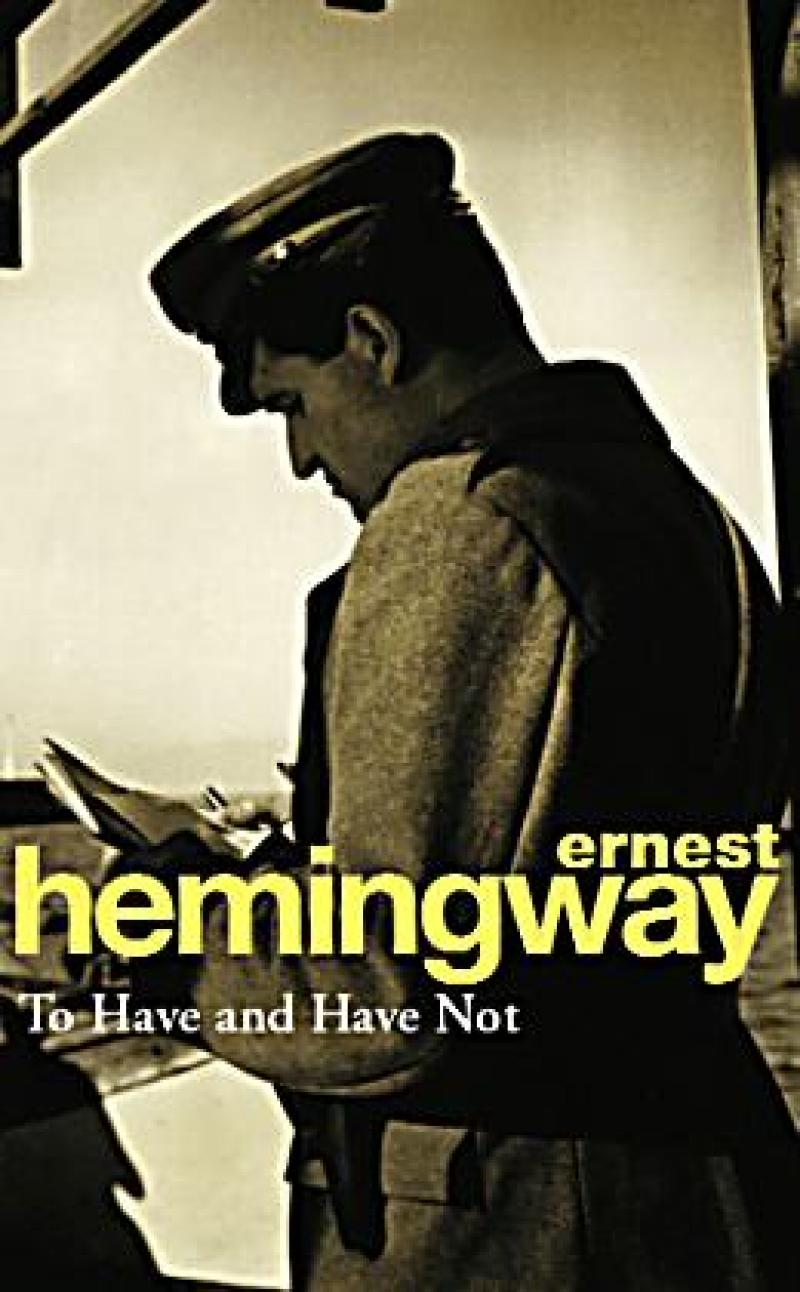Hemingway's "To Have and Have Not"



“The hell with my arm. You lose an arm you lose an arm. There's worse things than lose an arm. You've got two arms and you've got two of something else. And a man's still a man with one arm or with one of those. The hell with it,' he says. . . .after a minute he says, 'I got those other two still.”
― Ernest Hemingway, To Have and Have Not
"To Have and Have Not is a novel by Ernest Hemingway (publ. 1937) about Harry Morgan, a fishing boat captain out of Key West, Florida. The novel depicts Harry as an essentially good man, who is forced by dire economic forces beyond his control into the black-market activity of running contraband between Cuba and Florida. A wealthy fishing charter customer (one of the "Have's") tricks Harry by slipping away without paying after a three-week fishing trip, leaving Harry destitute. Harry then makes a fateful decision to smuggle Chinese immigrants into Florida from Cuba to make ends meet in supporting his family. Harry begins to regularly ferry different types of illegal cargo between the two countries, including alcohol and Cuban revolutionaries. The Great Depression features prominently in the novel, forcing depravity and hunger on the poor residents of Key West (the "Have Not's") who are referred to locally as "Conchs".

Ahmad Sharabiani
"Well before the midway point, Ernest Hemingway’s To Have and Have Not turns into a different sort of book. At least, that’s the way it felt to me. It begins as the very straightforward story of an out of luck ship captain who turns to crime in order to support his family. Nothing is that simple in Hemingway. While connecting to the current political and economic climate (which included an incipient revolution in Cuba), Hemingway transforms this personal tragedy into something infinitely more complex and more universal. In itself, that’s not surprising; however, I’m not sure that had been the plan. Even as To Have and Have Not becomes more interesting (and more Hemingwayesque), it begins to feel increasingly disjointed. I found this an enjoyable read, but the shifting perspectives could make it challenging to stay engaged. 3.5 Stars rounded up."

J.L. Sutton
"Guns and testosterone on the ocean waves.
To Have and Have not is without question the most macho of the Hemingway novels I've read so far. It's mean, it's brute, it's rum-soaked, and it's also quite miserable. Especially for the women. I wouldn't be surprised if he wrote this under a dark cloud of Alcoholism. Thankfully, his no nonsense simple prose that doesn't try to do anything fancy is here, but, when I think of novels like The Sun Also Rises and A Farewell to Arms, this just wasn't as pleasing on the eye.
I was surprised to learn that this is the only novel Ernest Hemingway set on American soil, and marked perhaps the only time in his writing career that he chose to follow prevalent literary trends rather than creating his own. Whilst the main protagonist; the washed-up and aggressive boat captain Harry Morgan was indeed a memorable one, the narrative overall ran into problems. The novel is told awkwardly using third and first-person narration, and there is clear reason for that, as it's really made up of two short stories - Originally called 'One Trip Across and 'The Tradesman’s Return' plus a novella loosely linked, added to the longer part of the book. This just didn't flow like a proper novel should, and was distinctly inferior to the other two Hemingway novels I mentioned above. Criticized for its fragmented form, its hard-boiled obsession with cojones, and its ham-fisted approach to politics, it wasn't received well, and in several places, including Detroit, was even banned for being classed as too obscene.
This might be my least favourite Hemingway, but he did capture really well the economic ravages and desperation of trying to stay afloat during the depression era, and the setting of Key West and Cuba was a refreshing change from what I've been used to. Whilst there is a lot of action taking place in boats on the Florida Straits, my favourite scenes, even though they made me feel sad, were those taking place in bars. Man, how I miss the bars & restaurants. I look forward to the day so much when I can drink like a fish in a bar.
I will likely at some point watch Howard Hawks' movie starring Humphrey Bogart and Lauren Bacall, and I wouldn't be surprised if it turned out better than the book. Even if it isn't, at least I'll get to see Lauren Bacall in her prime."

Steven Godin
Who is online
37 visitors

